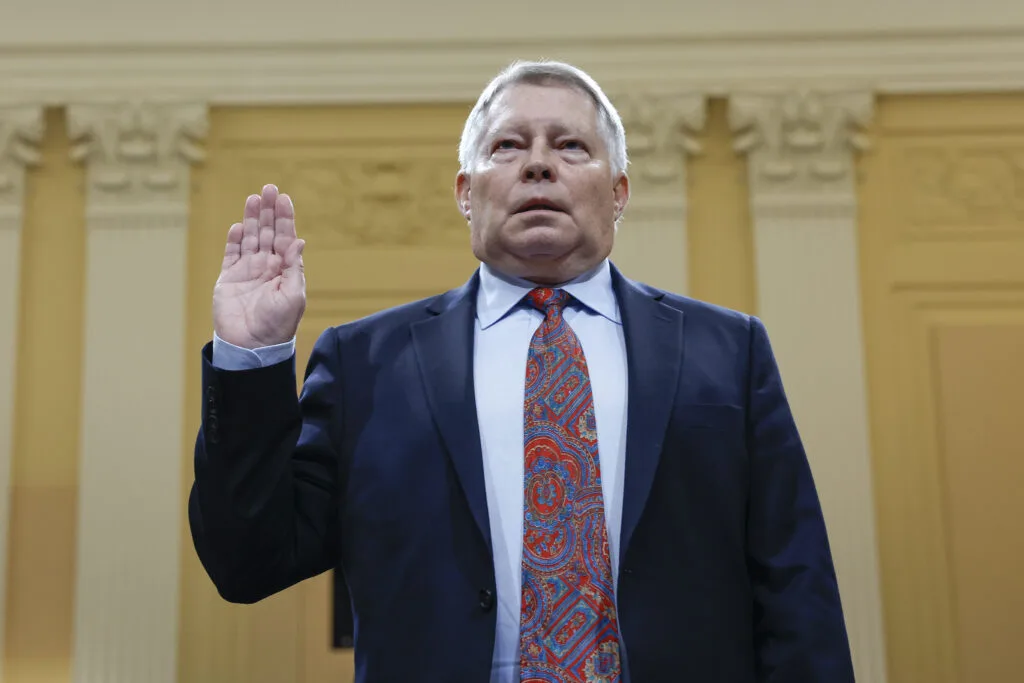J. Michael Luttig and Adam Kinzinger on Democracy and January 6

July 29, 2022
Congressional hearings into the January 6 attack on the U.S. Capitol have concluded for the summer after weeks of testimony. Among the key witnesses to appear before the committee was J. Michael Luttig, a former federal judge and renowned conservative lawyer.
On this special edition of The FRONTLINE Dispatch, listen to excerpts from an extensive interview with Luttig, as well as with U.S. Rep. Adam Kinzinger (R-Ill.), one of only two Republicans on the House select committee investigating January 6.
The extended interviews with J. Michael Luttig and Rep. Adam Kinzinger are available as part of FRONTLINE’s ongoing Transparency Project.
Latest Documentaries
Explore
Policies
Teacher Center
Funding for FRONTLINE is provided through the support of PBS viewers and by the Corporation for Public Broadcasting, with major support from Ford Foundation. Additional funding is provided the Abrams Foundation, Park Foundation, John D. and Catherine T. MacArthur Foundation, Heising-Simons Foundation, and the FRONTLINE Trust, with major support from Jon and Jo Ann Hagler on behalf of the Jon L. Hagler Foundation, and additional support from Koo and Patricia Yuen. FRONTLINE is a registered trademark of WGBH Educational Foundation. Web Site Copyright ©1995-2025 WGBH Educational Foundation. PBS is a 501(c)(3) not-for-profit organization.



















